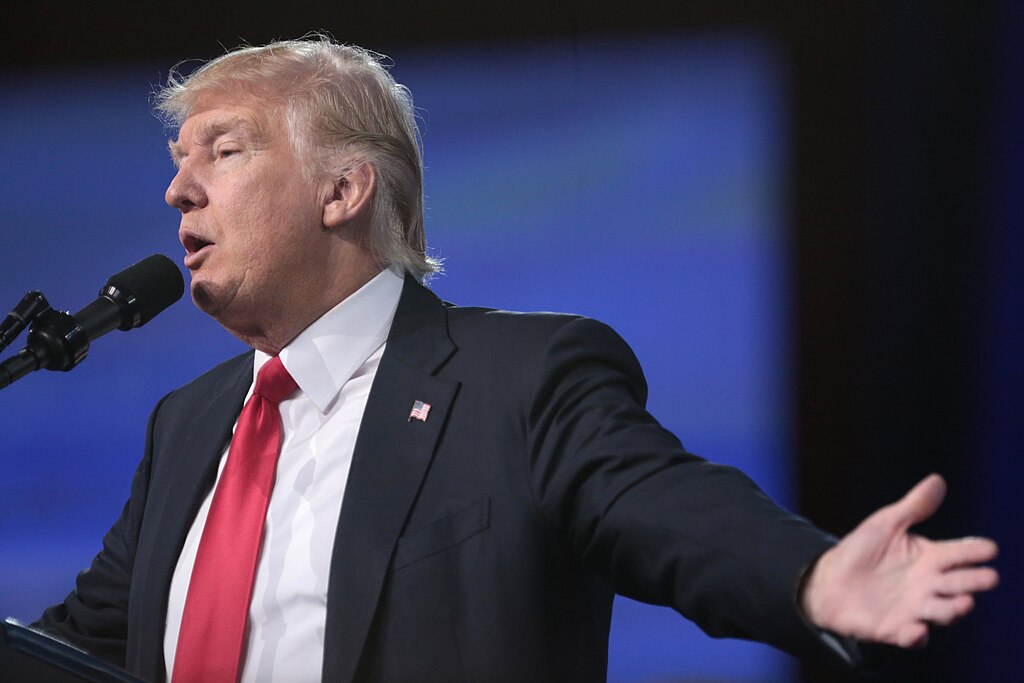U.S. President Donald Trump announced a 25% tariff on Canadian and Mexican imports and a 10% tariff on Chinese goods starting Tuesday, citing a national emergency over fentanyl and illegal immigration. The move triggered strong reactions from officials, businesses, and industry leaders.
Ontario Premier Doug Ford vowed retaliation, supporting a dollar-for-dollar response, emphasizing Canada’s leverage in minerals, energy, and aluminum. The Canadian Chamber of Commerce condemned the tariffs, warning of increased costs for consumers and businesses.
The auto industry expressed deep concern. John Bozzella of the Alliance for Automotive Innovation highlighted the $300 billion North American auto trade, warning that tariffs would hurt competitiveness, jobs, and affordability. Unifor, Canada’s largest private-sector union, called the tariffs an "economic war."
David McCall of the United Steelworkers Union warned of disruptions to industries on both sides of the border. Matteo Ceurvels of eMarketer projected a sharp decline in Mexico’s retail growth, and American Fuel & Petrochemical Manufacturers CEO Chet Thompson cautioned that higher energy costs could harm consumers.
Supply chain experts fear grocery inflation and rising consumer prices. Tom Madrecki of the Consumer Brands Association emphasized that tariffs on essential imports would increase costs for U.S. households. Nova Scotia Premier Tim Houston responded by restricting U.S. business access to procurement and doubling tolls for American commercial vehicles.
Critics, including U.S. lawmakers and economists, argue the tariffs contradict Trump’s push for lower energy prices. The American Petroleum Institute warned of disruptions in North America’s energy trade, potentially raising fuel costs.
With rising tensions and threats of retaliation, Trump's tariffs could ignite a trade war, increasing costs and economic uncertainty across North America.



 US Pushes Ukraine-Russia Peace Talks Before Summer Amid Escalating Attacks
US Pushes Ukraine-Russia Peace Talks Before Summer Amid Escalating Attacks  Trump Endorses Japan’s Sanae Takaichi Ahead of Crucial Election Amid Market and China Tensions
Trump Endorses Japan’s Sanae Takaichi Ahead of Crucial Election Amid Market and China Tensions  Gold and Silver Prices Rebound After Volatile Week Triggered by Fed Nomination
Gold and Silver Prices Rebound After Volatile Week Triggered by Fed Nomination  Silver Prices Plunge in Asian Trade as Dollar Strength Triggers Fresh Precious Metals Sell-Off
Silver Prices Plunge in Asian Trade as Dollar Strength Triggers Fresh Precious Metals Sell-Off  Japan Election 2026: Sanae Takaichi Poised for Landslide Win Despite Record Snowfall
Japan Election 2026: Sanae Takaichi Poised for Landslide Win Despite Record Snowfall  Singapore Budget 2026 Set for Fiscal Prudence as Growth Remains Resilient
Singapore Budget 2026 Set for Fiscal Prudence as Growth Remains Resilient  China Extends Gold Buying Streak as Reserves Surge Despite Volatile Prices
China Extends Gold Buying Streak as Reserves Surge Despite Volatile Prices  Gold Prices Slide Below $5,000 as Strong Dollar and Central Bank Outlook Weigh on Metals
Gold Prices Slide Below $5,000 as Strong Dollar and Central Bank Outlook Weigh on Metals  Bank of Japan Signals Readiness for Near-Term Rate Hike as Inflation Nears Target
Bank of Japan Signals Readiness for Near-Term Rate Hike as Inflation Nears Target  South Korea Assures U.S. on Trade Deal Commitments Amid Tariff Concerns
South Korea Assures U.S. on Trade Deal Commitments Amid Tariff Concerns  South Africa Eyes ECB Repo Lines as Inflation Eases and Rate Cuts Loom
South Africa Eyes ECB Repo Lines as Inflation Eases and Rate Cuts Loom  Trump Signs Executive Order Threatening 25% Tariffs on Countries Trading With Iran
Trump Signs Executive Order Threatening 25% Tariffs on Countries Trading With Iran  TrumpRx.gov Highlights GLP-1 Drug Discounts but Offers Limited Savings for Most Americans
TrumpRx.gov Highlights GLP-1 Drug Discounts but Offers Limited Savings for Most Americans  Dollar Steadies Ahead of ECB and BoE Decisions as Markets Turn Risk-Off
Dollar Steadies Ahead of ECB and BoE Decisions as Markets Turn Risk-Off  Ohio Man Indicted for Alleged Threat Against Vice President JD Vance, Faces Additional Federal Charges
Ohio Man Indicted for Alleged Threat Against Vice President JD Vance, Faces Additional Federal Charges  U.S.-India Trade Framework Signals Major Shift in Tariffs, Energy, and Supply Chains
U.S.-India Trade Framework Signals Major Shift in Tariffs, Energy, and Supply Chains  Fed Governor Lisa Cook Warns Inflation Risks Remain as Rates Stay Steady
Fed Governor Lisa Cook Warns Inflation Risks Remain as Rates Stay Steady 































